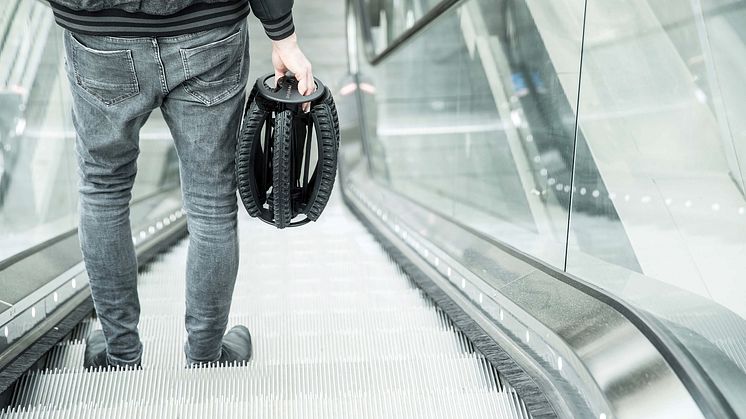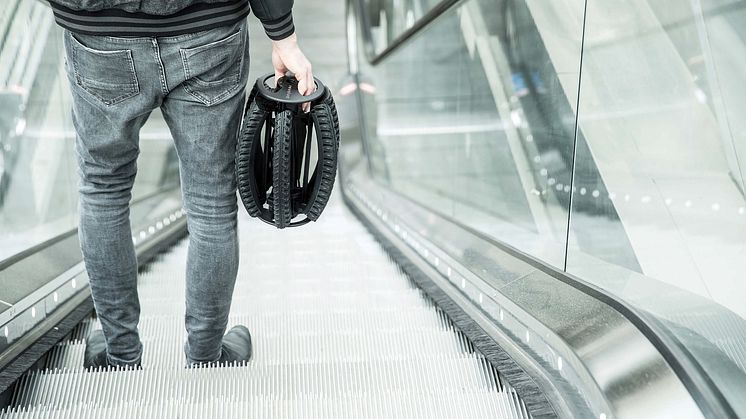
Press release -
Subcontractor InnoDex: New angles for a smart future
The world’s first modular, foldable wheels, super-stable high-tech wood, and a 3D-printed metal bridge. This year some 100 innovations are being shown at Subcontractor InnoDex – offering handpicked properties and possibilities for the industry’s future.
In recent years, the pace of development has been rapid in both new manufacturing techniques and smart materials. But it is only now that the industry is mature enough to use both new and traditional materials in a smarter way, says German innovation guru Dr Sascha Peters.
“People have seriously begun to think in new ways about traditional materials and take them into the high-tech world. By learning more about the materials’ unique properties, we can use new technology to develop those properties in a way that has never been done before,” he says.
A new materials industry
The rapidly growing interest in additive manufacturing is also leading to a demand for suitable materials. A whole new industry of materials for 3D printing has emerged, led by such companies as Evonik, BASF, Bayer and Wacker.
“Especially in the automotive industry, there is considerable pressure to find new solutions to how we can move someone from one place to another in a sustainable way,” Dr Peters explains. “It involves not only energy but also which materials and construction designs should be used.”
Wooden 3D Tubing
Lignoa Leichtbau of Germany is a good example of such a solution. Using a process developed in house, Lignoa can produce a sustainable and aesthetic high-tech alternative that is both lighter and more stable than aluminium profiles for such uses as vehicle interiors and chassis. Structural elements made of wood fibre can be built in almost any shape, and the fibres can be laid precisely along a three-dimensionally curved axis. The interior structure can be adapted to suit the calculated load the structure must bear and the profiles be given an optimal shape.
The world’s smartest wheel
Among the 100 or so products shown at Elmia Subcontractor’s innovation arena Subcontractor InnoDex, there are also examples of how traditional constructions can be given totally new properties and thereby new areas of use. The Italian designer Andrea Mocellin has further developed what is perhaps the most traditional product of all: the wheel. Revolve is the world’s first modular, foldable wheel – a full-size wheel for bicycles, wheelchairs etc., which, when folded, occupies up to 60 percent less space and fits into a cabin-sized bag.
“It’s an example of a product development that perhaps no one has asked for but that we can see has great possibilities now that the product exists,” says Dr Peters.
3D-printed steel bridge
Steel is another of the industry’s most traditional products. The Dutch company MX3D’s 3D-printing multi-axis robots have been used to prove that steel functions excellently when printed in larger constructions. The company has equipped ordinary industrial robots with specially built tools and has developed its own software to control the manufacturing process. This has enabled the company to 3D print a full-size pedestrian bridge made of metal in strong, complex and also elegant structures.
For more information contact Karla Eklund, Business Manager for Elmia Subcontractor,
phone: +46 36 15 22 61 or karla.eklund@elmia.se
Related links
Topics
Categories
Elmia Subcontractor brings together the manufacturing industry’s experts under one and the same roof. With 1,200 exhibitors from about 30 countries, unique conditions are created for business development and profitable deals.


